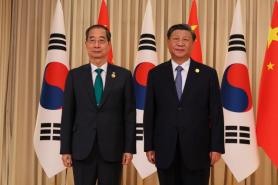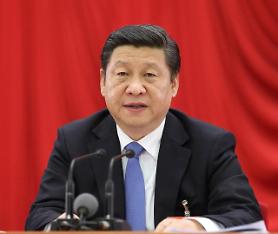
[This article was originally published in CGTN]
KARACHI -- In the much-awaited summit between President Xi Jinping and President Biden, the anticipated outcome materialized with two pivotal measures propelling Sino-US relations toward a course marked by stability and collaboration. The meeting not only met expectations but set in motion a trajectory indicative of a newfound era of cooperation between the two global powerhouses.
This carefully orchestrated interplay between leaders echoes the imperative for stability in overall international relations which is facing extreme stress due to the Ukraine conflict and the Israel-Hamas war. In a significant development during their first in-person talks in a year, U.S. President Joe Biden and Chinese leader Xi Jinping reached an agreement on Wednesday. The accord entails the establishment of a presidential hotline, the revival of military-to-military communications, and collaborative efforts to address the challenge of fentanyl production.
This marks a concrete step forward, underscoring tangible progress in the diplomatic engagement between the two leaders. Amidst the strained relations triggered by Pelosi's contentious visit to Taiwan, compounded by the balloon incident, hopes for a breakthrough in the Xi-Biden meeting were low. Nevertheless, optimism lingered for a boost to the recent strides in bilateral diplomatic communication. The meeting was not expected to yield a major breakthrough, given the intensity of divergent stances on key matters including Taiwan, but hopes were pinned on the two leaders reinvigorating the positive momentum in their diplomatic engagement.
President Xi has subtly signaled Beijing's earnest commitment to collaborating with Washington in resolving both bilateral and global challenges. Setting the tone for their discussions, Xi expressed optimism, stating, "Planet Earth is big enough for the two countries to succeed." This nuanced statement suggests a willingness from China to engage constructively with the United States, fostering an atmosphere conducive to addressing and resolving contentious issues on a broader scale.
A key aspect of the meeting lay in the candid and direct exchanges between the two leaders, providing a crucial element to stave off the risk of the escalating differences between their respective sides evolving into a major clash. President Xi forthrightly conveyed his nation's position on American engagement in the Taiwan Strait, emphasizing the imperative of peace and stability in the region. In a candid manner, he articulated China's stance on this critical issue during the discussion, underscoring the importance of maintaining a peaceful and stable environment in the Taiwan Strait.
President Biden, while reiterating the American position on Taiwan, hinted at a potential "toning down" from Washington on the issue. This subtle shift in stance emerges as a noteworthy aspect of the meeting, suggesting a possible positive development. The nuanced adjustment in the U.S. position on Taiwan will mark an interesting dimension, offering room for interpretation and signaling a potential shift in the diplomatic landscape. The Chinese decision to resume military-to-military communication is an encouraging gesture, underscoring their commitment to fostering a climate of trust. This move reflects a positive inclination from the Chinese side towards building and nurturing mutual confidence, a crucial element in diplomatic relations.
The interesting aspect of the meeting is that, apart from broaching a wide range of topics including Ukraine, the Israel-Hamas war, Iran and the Middle East and the Korean peninsula, both leaders allocated considerable time to globally significant concerns, delving into discussions on climate change and the regulation of artificial intelligence. This reflects a broad and comprehensive engagement on critical matters shaping the international landscape.
Apparently, as per the content of the discussions between President Xi and President Biden, there is no apparent change in stance between the two on these crucial matters, but there was an intention on both sides to further enhance the communication channels and both agreed to establish a hotline for direct connection between the two presidents. “We’re back to direct, open, clear direct communication on a direct basis. He and I agreed that each one of us can pick up the phone call directly and we'll be heard immediately," said President Biden. While symbolic in nature, this development holds the potential to proactively address uncertainties and dispel misgivings between the two sides.
The Xi-Biden summit marks a crucial step in halting the ongoing deterioration of the bilateral relationship. Although the agreements reached may not fundamentally alter the structural challenges within the relations, they serve as a foundation for more intricate working-level discussions. These deeper conversations are paramount, providing a pathway for addressing the intricate issues that persist, and are ultimately more vital in reshaping the dynamics of this complex bilateral relationship.
Copyright ⓒ Aju Press All rights reserved.




